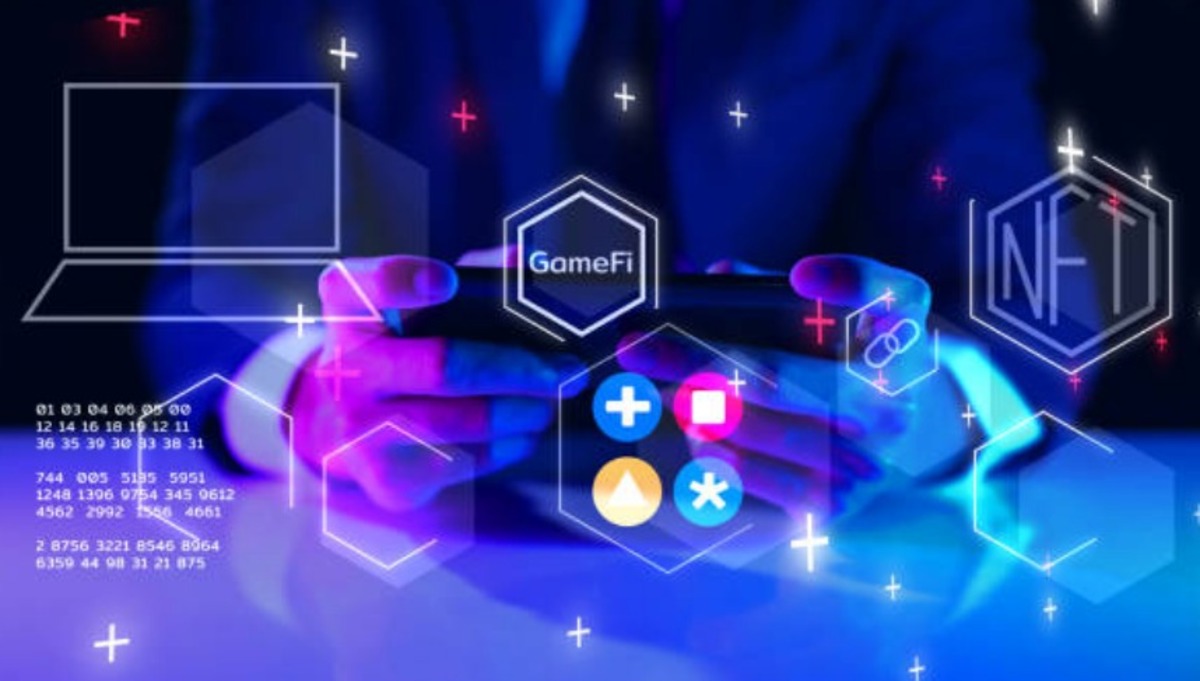CCCam HD Insights
Stay updated with the latest in streaming and tech.
Game Changer Alert: Why Blockchain is the Next Big Thing in Gaming
Discover how blockchain is revolutionizing gaming! Unleash the potential of decentralized tech and find out why it’s the game changer you need.
Exploring the Future: How Blockchain is Redefining Game Ownership
As the gaming industry evolves, blockchain technology is beginning to transform how players interact with digital assets. Traditionally, game ownership has been limited to purchasing titles and content, leaving players at the mercy of publishers and platform holders. With the advent of blockchain, players can now own their in-game items and assets in a decentralized manner, giving them true ownership and control. This shift not only empowers players but also introduces the concept of play-to-earn models, where gamers can monetize their skills and time spent in-game.
Moreover, the integration of non-fungible tokens (NFTs) within gaming ecosystems is creating new avenues for creativity and investment. Players can buy, sell, and trade unique digital items on various marketplaces, allowing them to build their virtual identities and portfolios. With blockchain's transparency and security, game ownership is becoming more reliable, as all transactions and ownership records are publicly verifiable. As we explore the future, the intersection of blockchain and gaming promises a revolutionary turn in how players experience and invest in the games they love.

Counter-Strike is a highly popular first-person shooter game that emphasizes teamwork and tactical gameplay. Players join either the terrorist or counter-terrorist side, completing objectives or eliminating the opposing team. Many gamers are always on the lookout for ways to enhance their gameplay experience, which is where the rollbit promo code can come in handy for those interested in gaming promotions.
Unlocking New Possibilities: The Benefits of Blockchain in Gaming
The integration of blockchain technology in gaming has opened up a world of possibilities that were previously unimaginable. One of the most significant benefits is the ability to create truly decentralized gaming environments where players have ownership of their in-game assets. Unlike traditional games, where items and currencies are stored on company servers, blockchain allows players to truly own their virtual assets as non-fungible tokens (NFTs). This ownership not only empowers players but also enables developers to create more engaging and rewarding experiences by incorporating play-to-earn models that incentivize players to invest their time and effort into the game.
Moreover, the transparency provided by blockchain enhances trust within the gaming community. With smart contracts, transactions are logged and verified on the blockchain, reducing the risk of fraud and ensuring fairness in gameplay. Players can see exactly how their assets are created and traded, fostering a sense of security that is often lacking in traditional gaming platforms. As more developers recognize these advantages, we are likely to see an increase in innovative gaming experiences that harness the power of blockchain, ultimately reshaping the gaming landscape for years to come.
What Gamers Need to Know About NFTs and Blockchain Technology
The gaming landscape is rapidly evolving, and one of the most significant innovations capturing attention is NFTs (Non-Fungible Tokens) paired with blockchain technology. Gamers need to understand that NFTs represent unique in-game assets, such as characters, skins, and virtual real estate, secured and verified through blockchain. This means players can truly own their items, trade them on decentralized marketplaces, and potentially profit from them. With the rise of play-to-earn models, gamers can now generate income by participating in games that utilize NFTs, making it essential to grasp how these assets work in the gaming ecosystem.
Furthermore, blockchain technology underpins the security and transparency of NFT transactions. By storing data in a decentralized manner, players can verify the authenticity and scarcity of their video game assets, reducing the risk of fraud and hacking. For those venturing into this new gaming frontier, it is crucial to educate oneself on various blockchain platforms, popular NFT marketplaces, and the potential impacts on gaming communities. As game developers increasingly adopt NFTs and blockchain, staying informed will help gamers make strategic decisions and enhance their gaming experiences.